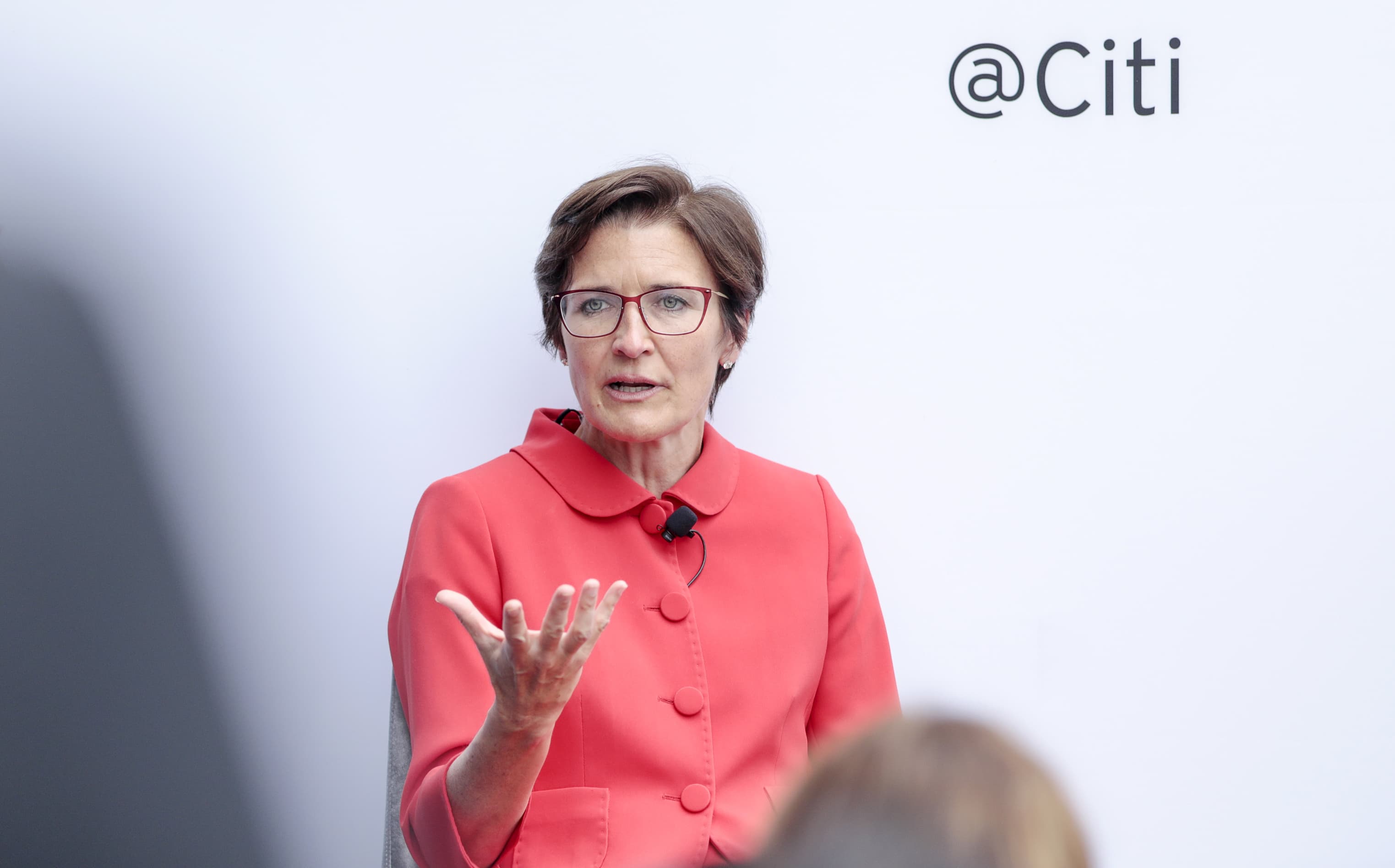Jane Fraser, chief executive officer for Latin American at Citigroup Inc., speaks during the Milken Institute Global Conference in Beverly Hills, California, U.S., on Monday, April 29, 2019.
Kyle Grillot | Bloomberg via Getty Images
Citigroup on Friday posted fourth-quarter results that beat analysts’ estimates for profit as the firm joined rival JPMorgan Chase in releasing reserves for loan losses.
Citigroup said earnings fell 7% to $4.63 billion, or $2.08 a share, compared with the $1.34 a share expected by analysts surveyed by Refinitiv. Companywide revenue fell 10% to $16.5 billion, below the estimate of $16.7 billion.
The bank released $1.5 billion in reserves for credit losses, a move that was bigger than analysts had expected. That compared with a reserve build of $436 million in the third quarter and $253 million a year earlier. As a result, credit costs in the period were more than $2 billion less than a year earlier.
Last year, banks set aside tens of billions of dollars for loan-loss reserves on the expectation that Covid-related shutdowns would force customers large and small to default on loans. Now, it appears as though the industry has turned a corner and will begin releasing some of those reserves, boosting profit and their ability to repurchase stock this year.
“As a sign of the strength and durability of our diversified franchise, our revenues were flat to 2019, despite the massive economic impact of COVID-19,” outgoing CEO Mike Corbat said in the release.
Citigroup shares fell 6.2%.
Citigroup made history when it announced Jane Fraser was taking over as CEO, making it the first big Wall Street bank to be run by a woman. Weeks before she succeeds Corbat, Fraser addressed investors and analysts for the first time on Friday. Shareholders wanted to hear how Fraser, a former McKinsey partner who ran Citi’s Latin American operations before becoming president in 2019, will improve returns at the company.
Fraser said that she was embarking on a review of the firm’s strategy to best position it to hit its return targets and satisfy regulators’ demands.
“We’re taking a clinical look at our strategic positioning, assessing which businesses can attain leading market positions in a much more digitized world,” Fraser said. “Like any true Scot, I believe there is value to unlock by simplifying the firm.”
Citigroup, the third-biggest U.S. bank by assets, has been hobbled by relatively poor performance compared with rivals including JPMorgan Chase. The results have frustrated investors including activist hedge fund ValueAct. The bank is also toiling under a regulatory consent order to improve its internal risk controls after it accidentally sent almost $900 million to lenders of Revlon last year.
Citigroup has said it expected fourth-quarter trading revenues to climb 15% from a year earlier, while investment banking fees should climb by 10% to 15%.
Shares of the New York based bank fell 23% last year, compared with the 4.3% decline of the KBW Bank Index.
Here are the numbers:
- Earnings: $2.08 a share, vs the $1.34 a share of analysts surveyed by Refinitiv.
- Revenue: $16.5 billion, vs the $16.7 billion estimate.
Earlier Friday, JPMorgan reported fourth-quarter earnings and revenue that exceeded estimates.

